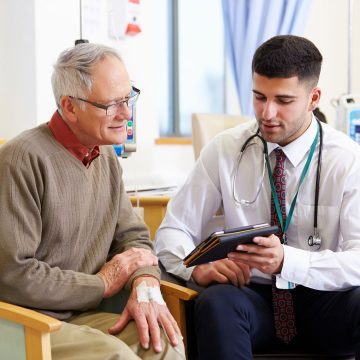
This article is part three of our six-part series on building your loved ones’ care team
As we continue our series on Building a care team for your aging loved one, this week, we will discuss the role of medical professionals on your team.
Building a care team for an elderly loved one can be daunting, but it is essential for ensuring their health and well-being. As our loved ones age, their care needs often become more complex and require a team of professionals to manage effectively. In this article, we will discuss the importance of medical professionals in building a care team and their role in consulting and communicating with the team.
Medical professionals are an integral part of an elderly loved one’s care team. They bring a wealth of knowledge and experience in managing age-related health issues and can guide and support the rest of the team. Depending on the specific needs of the loved one, medical professionals may include a primary care physician, geriatrician, specialist doctors, nurses, and other healthcare providers.
The first step is to identify the medical professionals needed. This may involve consulting with the loved one’s primary care physician or geriatrician to assess their health needs and determine the appropriate specialists to involve. It is also essential to consider the loved one’s preferences and ensure they are comfortable with the medical professionals involved in their care.
Once the medical professionals have been identified, communication is critical to ensuring that the care team works together effectively. Medical professionals should be regularly consulted and informed of the loved one’s health status and any changes in their care needs. This may involve sharing medical records, test results, and medication lists with the entire care team.
In addition to communication, medical professionals can provide valuable guidance and support to the rest of the care team. For example, they may offer advice on managing chronic conditions, coordinating medical appointments, and providing education on medication management. Medical professionals can also work with the rest of the care team to develop a comprehensive care plan that addresses all of the loved one’s health needs.
Finally, it is essential to ensure that medical professionals are involved in decision-making processes related to the loved one’s care. They can provide expert guidance on treatment options, medications, and other healthcare decisions, ensuring that the loved one receives the best care.
Building a care team for an elder loved one involves many components, including medical professionals. They play a vital role in providing expert guidance, support, and communication to the rest of the care team. By working together, the care team can ensure that the loved one receives the best possible care and enjoys a high quality of life in their golden years.

